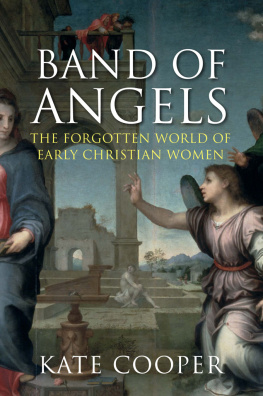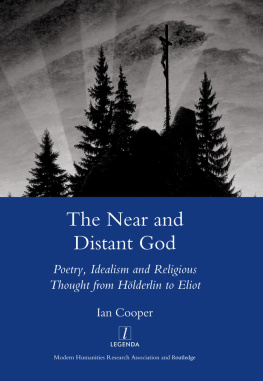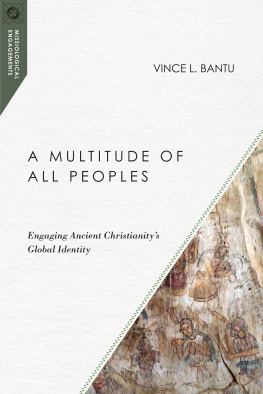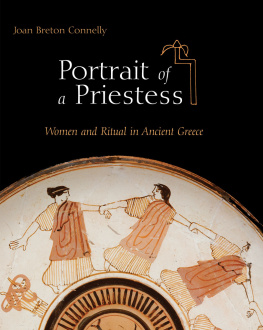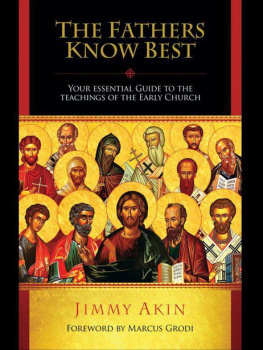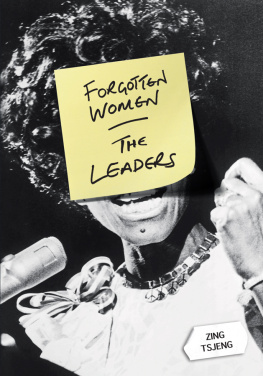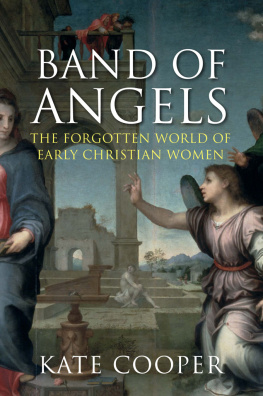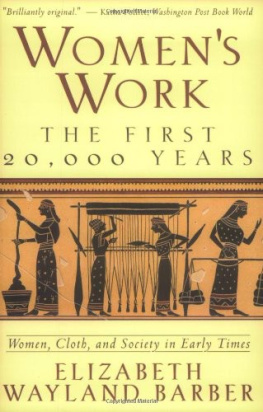BAND OF ANGELS
Also by Kate Cooper
The Virgin and the Bride
The Fall of the Roman Household

Published in Great Britain in 2013 by Atlantic Books, an imprint of Atlantic Books Ltd.
Copyright Kate Cooper, 2013
The moral right of Kate Cooper to be identified as the author of this work has been asserted by her in accordance with the Copyright, Designs and Patents Act of 1988.
All rights reserved. No part of this publication may be reproduced, stored in a retrieval system, or transmitted in any form or by any means, electronic, mechanical, photocopying, recording, or otherwise, without the prior permission of both the copyright owner and the above publisher of this book.
Every effort has been made to trace or contact all copyright holders. The publishers will be pleased to make good any omissions or rectify any mistakes brought to their attention at the earliest opportunity.
10 9 8 7 6 5 4 3 2 1
A CIP catalogue record for this book is available from the British Library.
Hardback ISBN: 9781848873285
Ebook ISBN: 9781848873315
Paperback ISBN: 9781848873308
Set in Latin 725 BT 11/15.9 pt
Typeset by Palimpsest Book Production Limited, Falkirk, Stirlingshire.
Printed in Great Britain.
Atlantic Books
An Imprint of Atlantic Books Ltd
Ormond House
2627 Boswell Street
London
WC1N 3JZ
www.atlantic-books.co.uk
Margaret Robb Shook Cooper (19252012)
Mary Louise Shook Wilkinson (19192001)
In memoriam
Preface
I n the house where we lived when I was a child, my bedroom was a tiny room at the top of the stairs. It had space for only a bed and a little table, but it holds a luminous place in my memory. It was there that my mother and I engaged in long talks about serious questions. We debated whether the Narnia children could really be friends with a lion, and whose fault it was that Juliet and Romeo did not live happily ever after.
One of these talks took place not long after the death of my grandmother, my mothers own mother. With the fierce and selfish love of small children everywhere, I had seen the wider principle behind this first exposure to death. A thing that could happen to my grandmother, I reasoned, could also happen to my mother, the indispensable person around whom the whole universe seemed to revolve. I never entirely recovered from the shock of that thought.
In retrospect, I admire the simplicity with which my mother spoke to this terrible awakening. She had recently discovered a secret, she told me. The love that bound her to her mother, she now knew, was strong enough to unite them in death as it had in life. Her mother was still with her, and would remain with her always. By a wonderful chain of connection, I too was bound in with them, and the love between us was a thread that could not be broken. One day, I would follow them both my grandmother and my mother to a place beyond our imagining, where they would be waiting for me. I was not to worry, she told me, about what it meant to say that such a place existed. No one knew much about it, but the details were beside the point. The thing to remember was that love is more powerful than death.
I recognize now that the whole conversation, as it unfolded in my bedroom, was an act of bravura on my mothers part. It was a gambit, at the end of a long day, to untangle a child from the days worries and to set her on the path towards sleep. At the same time, it was an attempt to tame the pain of loss, the loss that she felt as a daughter whose own mother had died. By finding the connection between her own mothers life and that of her child, she was able to find a place for her grief in the coming and going of generations. In trying to settle a restless child, she had tested the limits of her own understanding of the world, and this had allowed her to glimpse a luminous truth.
Years later, when her grandchildren came into the world, my mother remained fascinated by the connection she had seen between the waxing and waning of life. As she neared her own death, she became more and more certain that her own departure from this life was a necessary and fitting end to the role she had played bringing new life into the world. To the end, she maintained that the flow of time and the handing on from generation to generation are what make life what it is, and it is good.
My mother grew up in the Deep South during the Great Depression, and along with a legacy of plain-spoken wisdom handed from mother to daughter, she was heir to a great southern patrimony of storytelling. When I was a child, the fact that she was a teller of tales seemed to be the most natural thing in the world. To an unsuspecting ear, the telling of stories never seemed to follow a plan. It seemed to happen in conversation quite naturally. Stories welled up at just the moment when they were needed, to help make sense of a problem or situation in our own lives that was being talked about. They were a tool to think with. Remembering how earlier members of our family had met similar challenges was a way of keeping their memory alive.
Yet there was a logic to how the stories came up in conversation. The cycle of family stories was a kind of storehouse of hopeful thinking and advice on how to cope with difficult situations. Stories about the Depression tended to involve low-cost fun at family parties. The more painful stories were angled to highlight the generosity and courage of earlier generations, or to call attention to examples worth imitating. It was as if the women of our family had sent a message in a bottle down the stream of time, to tell us what they had learned about the world.
Many of my mothers stories were from her own childhood, but others reached back further, to her grandmothers youth during the Civil War and Reconstruction. Perhaps because they were handed from mother to daughter, the stories tended to revolve around the women of the family. As daughters and granddaughters remembered them, our foremothers formed a parade of heroines set against a kaleidoscope of changing circumstances. They had shown spirit in the face of great and small tragedies. Babies and children, including two of my mothers own siblings, had died of fever. Husbands, sons, and brothers had been killed in war, or worse by the lawless vigilante groups who ruled isolated rural communities during the Reconstruction. The widows in my family had not fainted in drawing rooms. They had worked tirelessly, in the face of illness and other dangers, to protect and sustain the lives of those who depended on them.
It was a landowning family, so they had responsibility not only for children but for a community of male and female dependants. Some of the stories celebrated the leadership of the familys matriarchs, often in difficult circumstances. Others remembered the pluck of women who had worked long hours in the households of my familys history: servants and, in my great-great grandmothers time, slaves. It was not all sweetness and light. A frequent moral was that the person in charge in any situation was not necessarily the one who had the most common sense. Even our heroines had had failings: the fact was acknowledged with affectionate laughter, but not dwelt upon. For the most part, the stories tended to idealize their protagonists, and to encourage the idea of making the best of a bad lot.
I do not remember when or how it was that I became aware that the fearlessness of our family heroines was bound up with their religious faith. It seemed clear that theirs was a god from whom they could draw extraordinary strength. Yet there was a paradox here. These women had lived in nineteenth- and early twentieth-century Alabama, an environment known not only for its spirited women, but also for its men-folks tendency to impute inferiority to the weaker sex. To the untrained eye it looked as if the Church had tended to be on the side of the men. If one reads the standard histories, the world of my great-grandmother was one in which wives were subject to their husbands, children were seen but not heard, and the Bible was used to keep the women and children in their place.
Next page
